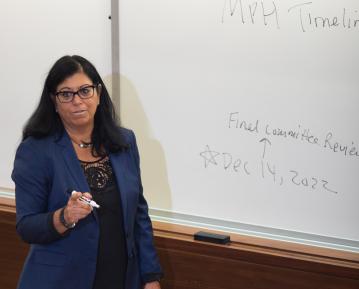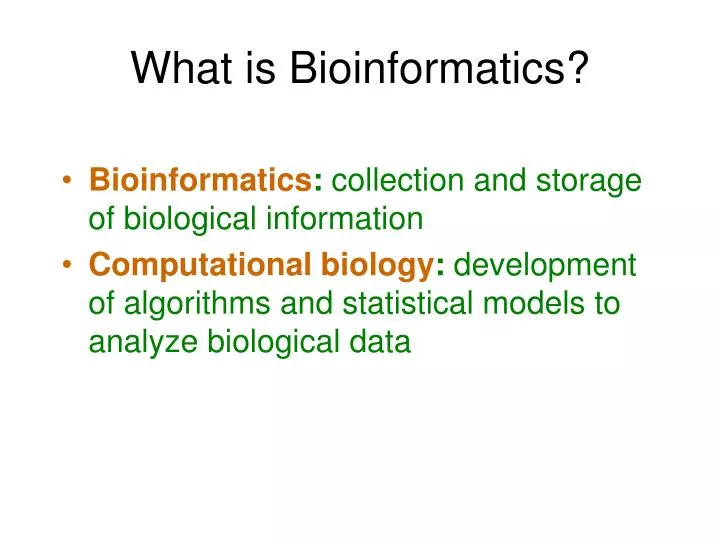Examine This Report about Bioinformatics Tutor
Examine This Report about Bioinformatics Tutor
Blog Article
The Basic Principles Of Bioinformatics Tutor
Table of ContentsOur Bioinformatics Tutor IdeasThe Facts About Bioinformatics Tutor RevealedThe 5-Second Trick For Bioinformatics TutorGetting The Bioinformatics Tutor To WorkThe Best Strategy To Use For Bioinformatics Tutor
Of the overall participants entailed in the training, 80% were trainees from public college establishments, while the staying 20% came from private institutions. To receive a certification of involvement, students were called for to participate in a minimum of 90% of the total training hours. As an outcome of this demand, an excellent 95% of the participants successfully gotten their certifications, having not only met the minimum presence requirements but additionally finished all assigned tasks throughout the training.
Throughout the height of the COVID-19 pandemic, especially between June and August 2020, the job team was charged with arranging specialized training in bioinformatics. This training was especially focused on students from the research study group Core for Research in Applied Computer at the Federal College of Pará (UFRA) The adaptation to remote understanding platforms as a result of the pandemic created a possibility to check out brand-new training methods and digital devices that boosted both reach and efficiency.
This program was developed to offer an obtainable yet thorough introduction of Artificial Knowledge methods, especially as used in bioinformatics (Bioinformatics Tutor). This virtual layout allowed engagement from trainees across Brazil, numerous of whom might not have had the chance to attend in-person sessions.
Not known Details About Bioinformatics Tutor
About 50% of the overall training hours were committed to functional tasks where students built intelligent models and applications in a range of scientific domains, including genetics, molecular biology, and environmental data evaluation. These systems made it possible for pupils to involve in real-time information adjustment, version training, and formula trial and error.
The training course brought in 80 individuals in total amount. Sixty of them were connected with numerous greater education organizations in the state of Pará, while the staying twenty came from organizations located in five various other Brazilian states. This wide geographical representation highlighted the national passion in bioinformatics and the expanding need for specialized abilities around. By introducing Expert system in a relevant and practical context, the initiative served to connect the void between theory and real-world application, supplying pupils with a strong structure for future research study or employment in the field.
The training effort developed part of a more comprehensive academic outreach initiative referred to as the Bioinformatics on the Roadway project. This job has, over the years, presented dozens of trainees to the globe of bioinformatics and computational biology. The events held under this umbrella campaign have taken location throughout multiple regions and years, as summed up in Table 1 (List of events, areas, years, and total numbers of pupils and instructors)
One of one of the most remarkable results of the Bioinformatics on the Roadway initiative has been its payment to the development of decentralized research groups. Numerous of these teams, initially brought together by their engagement in training occasions, have considering that taken place to create independent clinical research in partnership with neighborhood academic organizations. The training not just promoted clinical reasoning within the context of bioinformatics but likewise triggered collaborative partnerships that prolonged past the training setting. These collaborations have caused increased neighborhood scientific efficiency and added meaningfully to the development of the wider bioinformatics area in Brazil.
Some Known Questions About Bioinformatics Tutor.
The very same group, omitting IH and RR, likewise acted as tutors for the practical training components. Funding for the task was given through the grant 88887.200562/ 2018-00 from CAPES.
The Federal College of Pará's Office of Research study (PROPESP/UFPA) additionally offered economic support, specifically for the manufacturing of the final manuscript. The authors proclaim no commercial or financial conflicts of rate of interest that can have influenced the research. All opinions and interpretations shared in this article are exclusively those of the writers and do not always reflect those of their particular institutions, the publisher, editors, or reviewers included in the publication procedure.

The smart Trick of Bioinformatics Tutor That Nobody is Talking About
From an instructional viewpoint, the training technique made use of in the training was purposefully interactive. Courses were carried out in a way that encouraged student participation and conversation, going past memorizing memorization to check out exactly how ideas are developed, applied in day-to-day live, and examined in scholastic settings. The instructional philosophy concentrated on nurturing both strong and struggling pupils, giving personalized support, and building self-confidence via sustained mentorship and patience.

Each team, containing about 36 individuals, was supported by 3 advisors-- most of whom were postdoctoral researchers with specialized proficiency. These advisors not just assisted design the team jobs but additionally promoted their execution, ensuring that each research study question was both Going Here appropriately difficult and relevant. The objective was to supply a biologically practical context that participants could check out through flexible goals and access to curated datasets.
For extra insights right into the method and outcomes of this project-based learning technique, readers are routed to S1 Text, which includes detailed summaries of the pedagogical structure, assessment techniques, and task styles used in the training sessions.
The Best Guide To Bioinformatics Tutor
Of the overall individuals included in the training, 80% were trainees from public greater education organizations, while the staying 20% came from exclusive institutions. To useful site qualify for a certificate of involvement, trainees were called for to participate in at the very least 90% of the total training hours. Notably, beyond the trainees that enlisted in the training sessions, 7 experienced instructors took part in providing the programs, while 3 specialized study teachers worked with the total training procedure. Approximately 50% of the total training hours were dedicated to practical activities where students developed intelligent models and applications in a range of scientific domains, including genetics, molecular biology, and ecological information evaluation. The training not just promoted clinical thinking within the context of bioinformatics however also sparked collaborative relationships that extended beyond the training setting.
Report this page